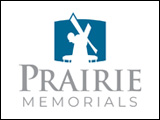Know your options
With interest rates so low, you may be thinking of taking the big step into home ownership, ‘moving up’ or even refinancing your existing home. If so, knowing what’s what with mortgages can save you money now and in the future. Here’s a mortgage primer to get you going.
Get pre-approved
Many people want the security of knowing they have a pre-approved mortgage before they go house shopping. If you decide to do this, make sure your rate will not increase if rates rise, but will be automatically reduced if they drop.
The down payment decision
Conventional mortgages do not exceed 80% of the purchase price of a house – you supply the other 20% as a down payment. If you don’t have that kind of cash on hand, you can apply for a high ratio mortgage, but it must be insured through Canada Mortgage and housing Corporation (CMHC) or GE Mortgage Insurance Canada (GE). Your monthly payments will definitely be much higher so consider this option carefully. Becoming ‘house rich and cash poor’ can cause significant money and emotional stresses.
Amortization – shorter is better
Amortization is the number of fixed payments or years it takes to repay the entire amount of a mortgage. The traditional amortization period is 25 years, but by making higher monthly payments over a shorter amortization period, you’ll pay off the loan that much faster and save substantially on borrowing costs.
Flexibility can save you money
Try to include the option of changing payment frequency or of increasing the amount of your monthly payments (preferably with no fee). By making accelerated payments you’ll pay off your mortgage faster. The same is true of lump-sum payments. When you have excess cash, you can use it to reduce the principal amount of your mortgage loan. Most lenders allow a yearly lump-sum prepayment of up to 10% of the original principal amount, and some allow more.
Open or closed – to gamble or not
An open mortgage lets you pay off as much as you want, any time, without penalty. But, open mortgages usually have higher rates (sometimes much higher) than closed mortgages. However, a closed mortgage usually can’t be prepaid in full, renegotiated or refinanced during its turn.
And speaking of terms…
A mortgage term is the period of time for which the money is loaned under the same rate terms. When the term expires, you have the choice of repaying the balance of the principal still owing or renegotiating your mortgage for a further term at the then current interest rate.
When interest rates are low, it’s usually advantageous to ‘lock in’ a long-term fixed rate mortgage. But, when there’s a significant difference between short-term and longer-term mortgage rates, it can be a worthwhile strategy to take the shortest term possible – 6 months or 1-year – and assess you options at its conclusion.
Fixed versus variable rate
With a fixed rate mortgage, you can be certain the interest rate will remain the same for the mortgage term making it easier to budget. A variable rate mortgage may deliver a lower initial interest rate, but this will fluctuate from month to month with changes in prevailing market interest rates.
Don’t jump into a mortgage – take the time to find the right product for your unique situation. We can help you make sound decisions for your life as it is now and as you wish it to be in the future.
This column, written and published by Investors Group Financial Services Inc.(in Québec - a Financial Services Firm), presents general information only and is not a solicitation to buy or sell any investments. Contact your own advisor for specific advice about your circumstances. For more information on this topic please contact your Investors Group Consultant. Insurance products and services are distributed by I.G. Insurance Services Inc. (in Québec - a Financial Services Firm). Insurance licence sponsored by The Great-West Life Assurance Company outside of Québec.



